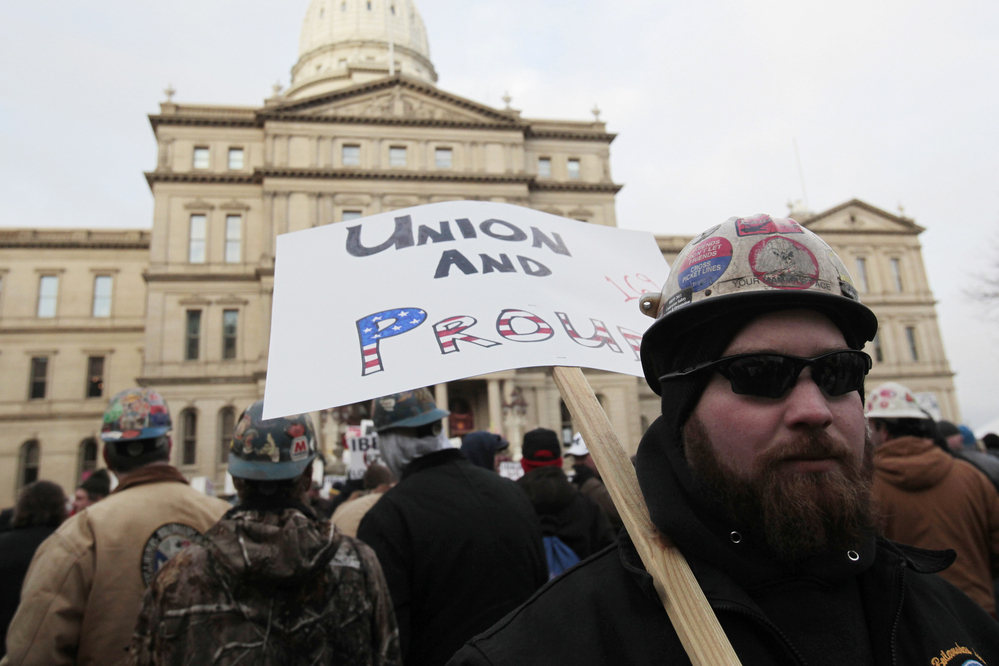Audio for this story from All Things Considered will be available at approximately 7:00 p.m. ET.
December 30, 2012
Despite huge protests at Michigan's state capitol building in Lansing, Republican lawmakers in the state made the union stronghold the 24th right-to-work state in the country.
Despite huge protests at Michigan's state capitol building in Lansing, Republican lawmakers in the state made the union stronghold the 24th right-to-work state in the country.
Rebecca Cook/Reuters via LandovThis year was a tough one for organized labor.
In June, Scott Walker â€" the Wisconsin governor who banned collective bargaining for public employee unions â€" survived a recall election.
And, despite huge protests in Michigan, the union stronghold became the 24th right-to-work state, banning unions from requiring workers to sign up. That came just 10 months after Indiana passed a similar law.
Harold Meyerson, editor-at-large of The American Prospect, says it's only the latest in years of mostly union defeats. Despite some bright spots, Meyerson tells weekends on All Things Considered host Jacki Lyden that the future for organized labor in the U.S. looks gloomy.
Interview Highlights
On the state of unions after years of defeats
"A lot of unions have gone into a somewhat understandable fetal curl. Organizing for most major unions has dried up. Meanwhile, wages, even at unionized companies are going down, because when you represent one unionized company in an ocean of non-unionized companies, you don't have much leverage."
On the effects of organized labor's diminished power
"Companies are sitting on well over a trillion dollars of their own cash. And the chief use their making of their cash is, chiefly, to buy back their own stock. This is happening at a time when wages have either been stuck or declining for some time, but no one is even raising the prospect of using some of their cash to give raises. And the reason for that, in large part, is that there's no bargaining table anymore at American corporations."
On unionizing low-wage workers
"There are efforts afoot to at least get some action in industries that people have long thought impossible to organize. Wal-Mart in particular, also fast-food chains in New York. I would expect to see more efforts along the Wal-Mart supply chain â€" for instance, the warehouse workers. That would probably be the way to impact a company like Wal-Mart, because Wal-Mart is just too big and too spread-out to do anything frontally."
On public employee unions
"One of the things unions have to hope for is that they don't suffer massive loss of members in the public sector unions because that's really their remaining area of strength. Public sector workers are unionized at a rate way higher than the 7 percent in the private sector. And those are the unions that can still wage very effective political campaigns during the elections, can still get decent benefits and wages for their members. So they have to really work on making sure that laws like the ones in Wisconsin that just eviscerated those unions don't spread to other states."




